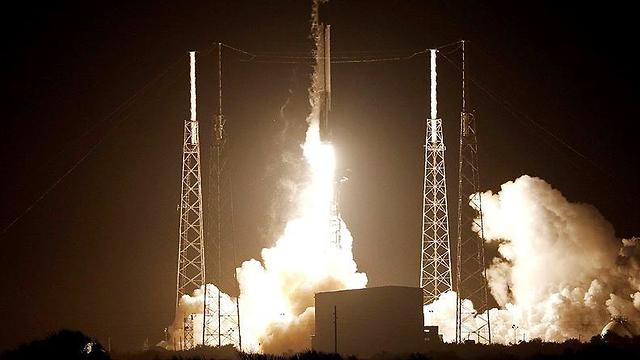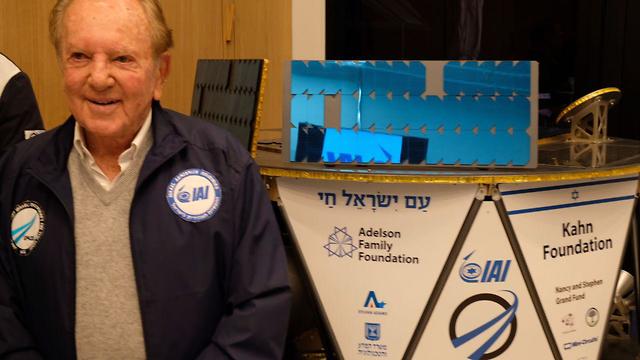
So then I ask myself: "The moon!? Why the hell is it so pressing for Israel to reach the moon when we haven’t even reached the ability to have a fully functioning railway system?"
But I would be wrong to do that. This silly claim that "a country that can’t get the buses right shouldn't launch a spacecraft to the moon," has been heard too many times over the past week. We should stick to the facts for a moment: the Beresheet (genesis) project does not belong to Israeli government, and when it lands on the moon, Culture Minister Miri Regev will not rush to have a photo-op with it (or maybe she will, Miri, if you're reading this, I urge you to head off into outer space!).
Actually, very few shekels of taxpayers’ money went into financing the $100 million project and most of the funds were raised through private donors, the most prominent of whom is South African-born Israeli billionaire entrepreneur Morris Kahn, who invested $44 million of his own money and in 2011 founded SpaceIL with the sole purpose of landing a spacecraft on the moon.
I had the opportunity to interview Kahn ahead of the liftoff, and the bottom line is that as well as the hundreds of millions of dollars that the man has quietly invested over the years into a groundbreaking Israeli medical study—meant to help rehabilitate disabled children—the lunar mission has become a passion project for him. He was able to recruit additional donors from all around the world, and when the spacecraft was complete and the mission was ready to go ahead, he opted out of attaching his name to the project, making it seem to be a national Israeli achievement.
Meanwhile, SpaceIL has turned the project from a strictly technological endeavour to an educational one, making its way from school to school, giving lectures on space exploration and trying to encourage children's interest in science. The successful launch of the spacecraft and the accompanying media coverage sparked an increased interest among the kids, whom I constantly hear discuss the shuttle and its trajectory.
Beyond the national pride, thanks to the project, the Israeli education system has been given a scientific boost when most of the reinforcements come from the auspices of religious organizations that are somewhat less scientific in their approach.
This claim that there's no need to fly into space when we have trouble reaching Nahariya, is baseless. If external donors such as Kahn, were required to bankroll state infrastructure, we would have a real problem, not to mention total bankruptcy because we would be left entirely at the mercy of private investors.
It would be helpful, however, if the state were to take an example from the Beresheet project, which stumbled over countless technological, budgetary and managerial obstacles, but was eventually not only successfully completed but also found itself to be an educational outlet. If they — we — can do that, then surely anything is within our grasp. Even getting to Nahariya on time.


















